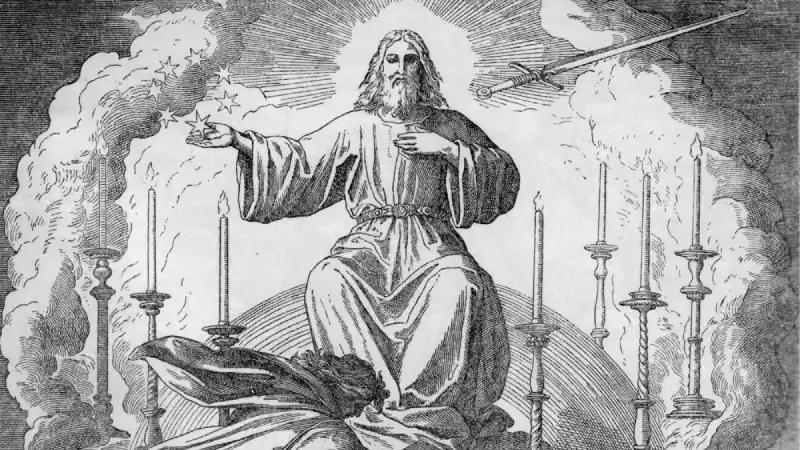
If Anyone Would Come After Me
Mike: Steve, we want to continue a discussion we began last week stemming from your book, Standing Firm Through the Great Apostasy, on the subject The Message of the Cross. Now, in our previous interview, we talked a little bit about what happened on Calvary, the horror of that event, what the Father went through and what Jesus went through. We also talked about the relationship between Jesus and His disciples. Specifically, we discussed the difference of heart response between the eleven disciples and that of Judas. Today, we want to dig a little bit deeper into what exactly the Message of the Cross is. You have a perspective on that stemming from what Jesus actually said in the Gospels, correct?
Steve: Well, what happened was that Jesus started warning the disciples that he was going to be arrested and crucified. You see that in Luke 9 and also in Matthew 16. It's actually in all four gospels, the only teaching that's in all four gospels. The words He said are extremely important to the Christian. He said, "If anyone wishes to come after Me..." Now that sums up everyone who calls themselves a Christian. There are three things he must do, Jesus says, "he must deny himself, take up his cross and follow Me.
Mike: Well Steve, let's take a look at those three statements in the verse. Let's start with denying himself. Now, what does that really mean, to deny yourself?
Steve: Well we have to understand that, first of all, in the sight of a holy God, we are criminals. So, to come into Christianity requires repentance. That is a message rarely heard anymore. Today we hear something more along the lines of, "accept Jesus to be your Savior," or, "trust Jesus," kind of, nice little terms. But biblical repentance means something far different. It means a complete 180, a complete change of direction. You know, you're going through life doing your own thing, never mind the big outward sins, but just doing your own thing as a rebel. Doing a 180 means that you stop that. You repent and you turn back towards God and He becomes the Boss in your life. But the problem is that you have a mountain of crimes in your life that you are culpable for.
Mike: Steve, it seems that so many in the church, and we can include ourselves at some point in our lives, compare themselves to others and we can always see people worse off than us. And the problem is, we actually end up thinking we're pretty good.
Steve: That's the reality. We don't see the depravity of our nature the way we should. We don't see how bad we have been. We don't see our little acts of selfishness, our pride, our resentments, our envies, the petty little things that we've done. We don't see our gossiping, backbiting, anger and the hatred that's in our heart towards certain people. We don’t see the self-righteousness. We don't see that all those things that seem so petty and minor to us that stand out as enormous crimes before a holy and pure God. So, when you come into Christianity, there has to be a repentance of what you have been, of who you have been as a person. But most people kind of just come into the church thinking they're doing God some great favor by attending church on Sundays or by not partying on the weekends.
Mike: You used two scenarios in your book, Steve, that I felt really helped to bring out how we just don't see ourselves rightly.
Steve: Scenario one is a guy named James. He comes and stands before God, and the devil is his accuser. The devil is the prosecutor who’s telling God all the bad things that James has done. Then Jesus steps in and says, "Now wait a minute, I'm going to take his sin upon myself and he can be made free. After all, James is a pretty good guy. He's not that bad, so I'm going to take it upon myself." Here, Jesus acts as not only the defense attorney, defending James as he is wrongfully attacked by the devil, but also offers to take the sentence upon himself. And the Father, who is the Judge in this picture, says, "OK, case dismissed. James is free to go."
Mike: You know, when I first read that, I thought that’s kind of how it is, right?
Steve: Yeah, and you know where we get that at is Revelation 12:10 where Satan is called the accuser of the brethren. But Satan is never called the accuser of sinners. Satan doesn't accuse sinners, he leads them down the path of self-justification, of rationalizing their sin, and blame-shifting.
Mike: There's something missing in the story of James, and I don't think people, like me when I first read it, aren't going to pick up on until the second scenario.
Steve: That second scenario brings it out. There's William in the same setting, standing in the criminal docket of the high court. He's charged with treason against God's Kingdom, just as James was. But here, it's not the devil who is William's accuser but the Holy Spirit, Scripture, his own conscience, and a long line of witnesses who testify about the many things that they had seen in William's life. But William's reaction is the difference. William steps forward and says to the judge, "Your honor, not the half of my crimes against you have been told. I am guilty as charged and I deserve the full penalty of the law. All I can do is promise you that I will change my life and ask for mercy.” You see, his attitude is one of repentance. James' attitude was one of wanting to get something from God without it costing him anything.
Mike: As you share that, I look back on my own early experience having heard the Gospel. Like what you share in the book, I had kind of a general sense that all of us are sinners, and that I didn't want to go to Hell. And I wanted from God a get-out-of-Hell free card, for lack of a better term. So, I started what I thought was a Christian life with no other gratitude than for this free get-out-of-Hell card. And it took years before I really got a sight of how guilty I was before God.
Steve: But you did get that site, and I saw you do it. But you know, Charles Spurgeon really brought this out well. He said, "The attitude a lot of people have is like the thief who stands before the judge. He's not looking to quit his thieving ways. He's not looking to have a change of heart. He's looking for mercy just so he doesn't have to pay the consequences and go to prison. And so, he's begging for mercy not because he has any intention of becoming a different man, a good citizen, or anything like that. He just doesn't want to pay the consequences." And that's the attitude of many people who come into Christianity. That's the exact same attitude they have. They're not looking to change, not looking to let God rule and reign over their hearts. They just want to escape Hell for free, like you said.
Mike: Now, relate this back to what we're talking about here. What does it mean to deny self?
Steve: Mike, it really boils down to your perspective of yourself. The truth is that 99.9% of human beings think of themselves as good people. There was a study done in a prison for the criminally insane. They did a survey and one of the questions they asked was, "Do you consider yourself a good person? And of those several hundred inmates, 100%, every single one of them, responded yes. Everyone thinks they are a good person who deserves Heaven. And that fundamental attitude towards yourself has to be overthrown. You have to see yourself as a guilty sinner, a criminal in the sight of a holy God. Because, until you see that and get that, you won't really experience true repentance and Jesus Christ cannot take his place on the throne of your heart because you're still on the throne of your heart. You're in control of your life.
Mike: And I want to make this point: that can be true, even though you claim to believe in Jesus.
Steve: James said the Devils believe and tremble. This is the tricky thing, the subtle thing about faith. When you believe in someone, you believe in them. Saying, “I believe in you Lord,” means so much more than superficial head-knowledge. Maybe you've kind of acknowledged that there was a Jesus Christ who lived. You believe what the Bible says is true and all that. But if you really believe that the Bible is true, it will show in your life, because a person who transfers their trust from themselves to Christ will have a revolution in their life. And then, before long, the evidence of that changed life comes forth very loud and clear.
Mike: But as you said, that demands repentance, and in order to have repentance, you have to be willing to acknowledge what Jesus has said is true about you. Why is it so hard for unconverted churchgoers to face the truth of themselves?
Steve: Because they don't want to acknowledge that there's something wrong with them. You know, it is just inherent in human beings. All of us are this way. We hate to say we're wrong. We feel like our character is being impugned by saying that we're not good people. Everyone wants to think of themselves as a good person, deserving Heaven. But the reality is that if a person thinks that they're good, and that they deserve Heaven, then they don't need a Savior and therefore they won't have one.
















